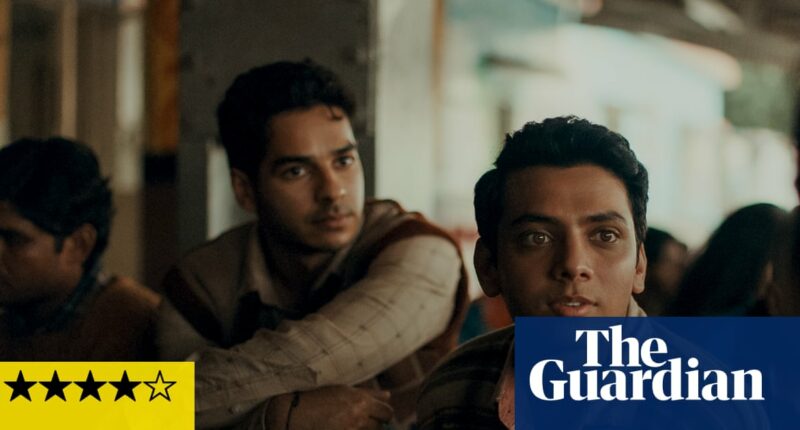Share this @internewscast.com
Having been shown at the Cannes film festival earlier in the year, this Indian drama has been continuously likened to All We Imagine As Light, an Indian movie that premiered at Cannes the year before. However, the similarities are quite minimal. Payal Kapadia’s ethereal and dreamlike narrative was mainly set in an urban environment and infused with elements of magical realism. In contrast, this movie is a straightforward, realistic portrayal of impoverished young men from a rural northern Indian town who are trying to improve their circumstances, inspired by a 2020 New York Times article.
The film’s director Neeraj Ghaywan, who earned acclaim for his 2015 debut Masaan, found a mentor in none other than Martin Scorsese, who guided Ghaywan through script development and editing. The specific contributions are unclear, but the final result is highly impressive. This film provides an emotionally nuanced exploration of friendship. Despite the potentially sentimental storyline, the usually prominent musical score found in mainstream Indian films has been wisely toned down. This decision allows the outstanding lead actors and compelling cinematography to shine on their own merits.
The story centers around Chandan Kumar (played by Vishal Jethwa), a Dalit from the historically oppressed “untouchable” caste, and his close friend Mohammed Shoaib Ali (played by Ishaan Khatter). Both hail from destitute families and have limited opportunities for improvement unless they relocate to a city, similar to the women in All We Imagine As Light, or go abroad. Shoaib recently declined a job offer in Dubai. Both friends take exams to enter the police academy, facing a lengthy wait of nearly a year for their results due to bureaucratic delays.
Meanwhile, Shoaib secures a low-level job at a water purifier company but encounters anti-Muslim discrimination when attempting to move into sales. Smitten with the spirited Sudha (portrayed by Janhvi Kapoor), whom he met during the exam, Chandan attempts to follow her to college. However, his family’s financial needs force him to find work far away at a textile factory, where conditions are harsh. Shoaib eventually joins him, and just as things begin to improve, the pandemic strikes.
Another filmmaker might have focused solely on the young men’s arduous journey back to their families amidst curfews and limited transportation during the pandemic. However, Homebound is enriched by exploring the earlier lives of Chandan and Shoaib, helping viewers to connect with them as individuals and understand the stakes involved. While non-Indian audiences might find some cultural elements unclear, essential aspects become apparent as the story unfolds, showcasing the film’s refusal to oversimplify or alter cultural nuances for a Western audience. The film builds up to a powerful ending that is sure to evoke strong emotions, so have tissues ready for this tearful conclusion.















